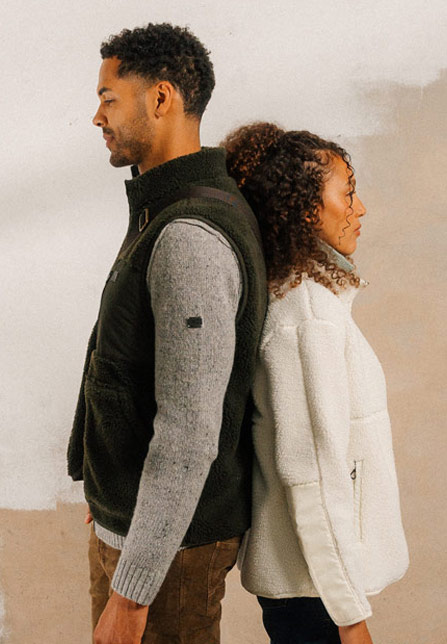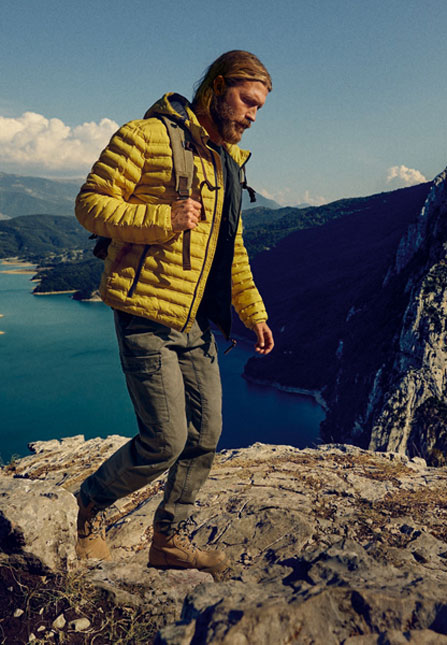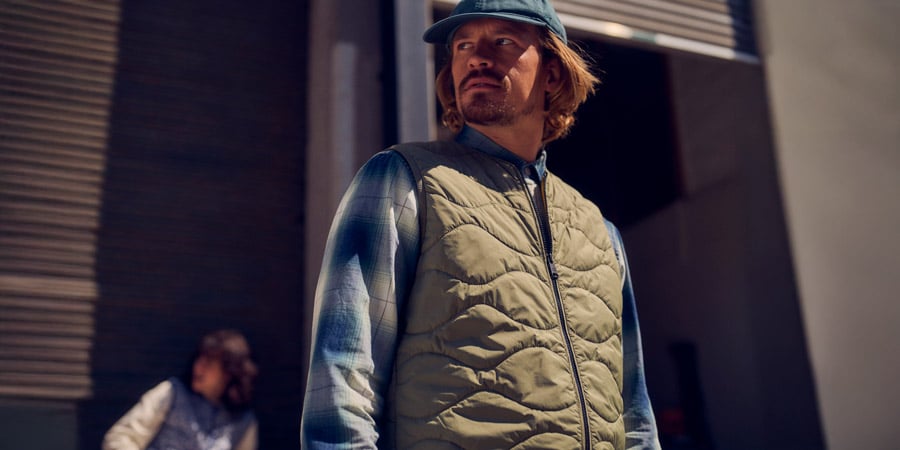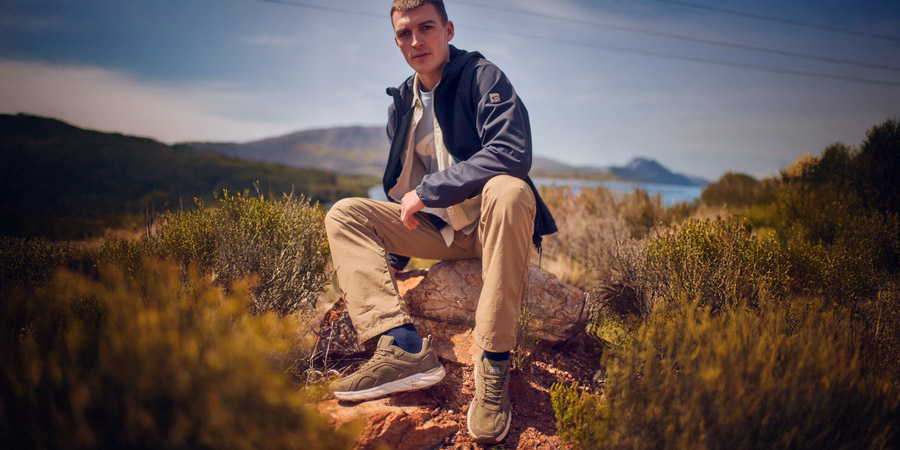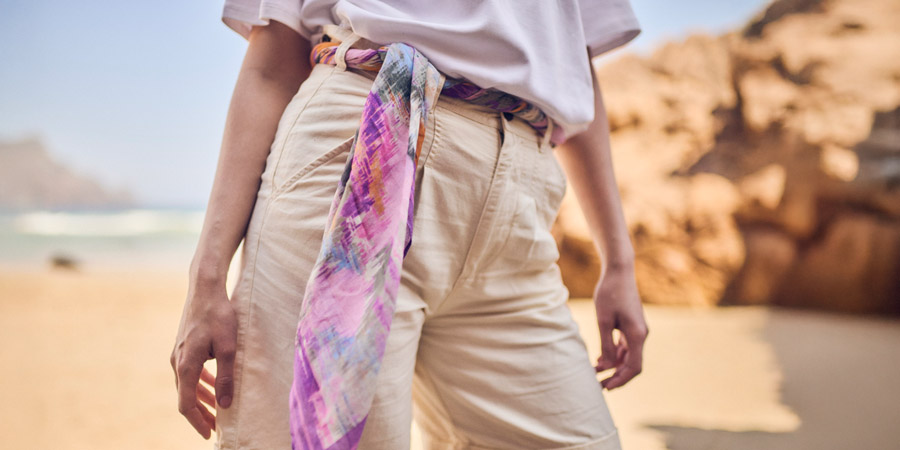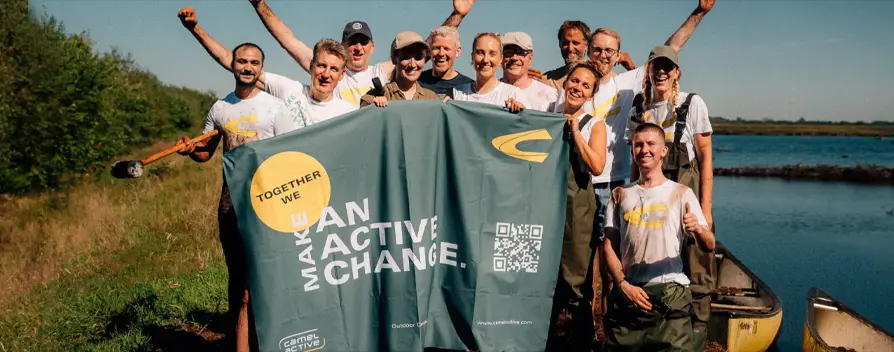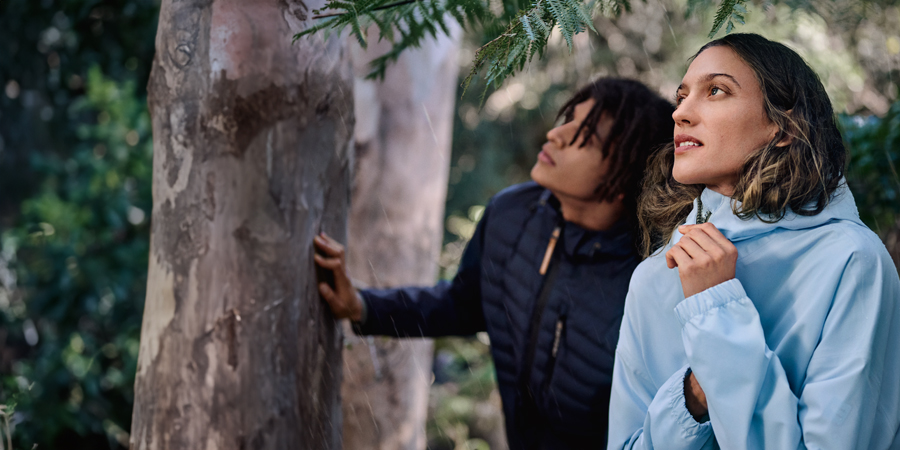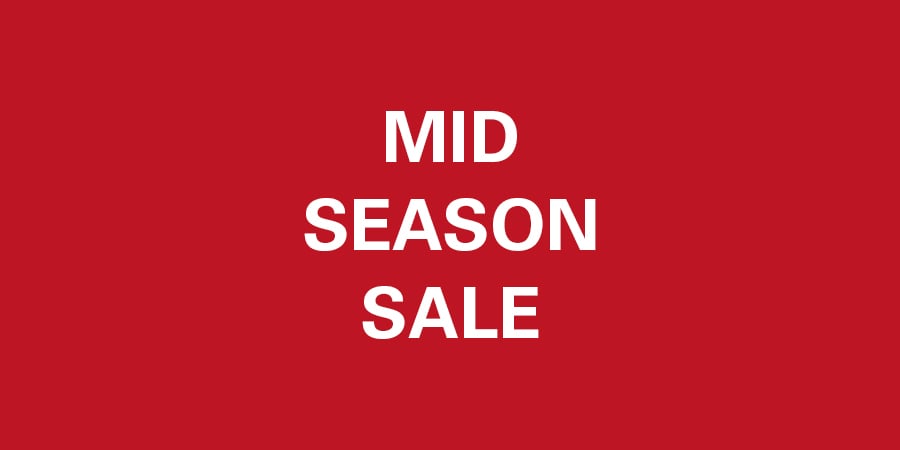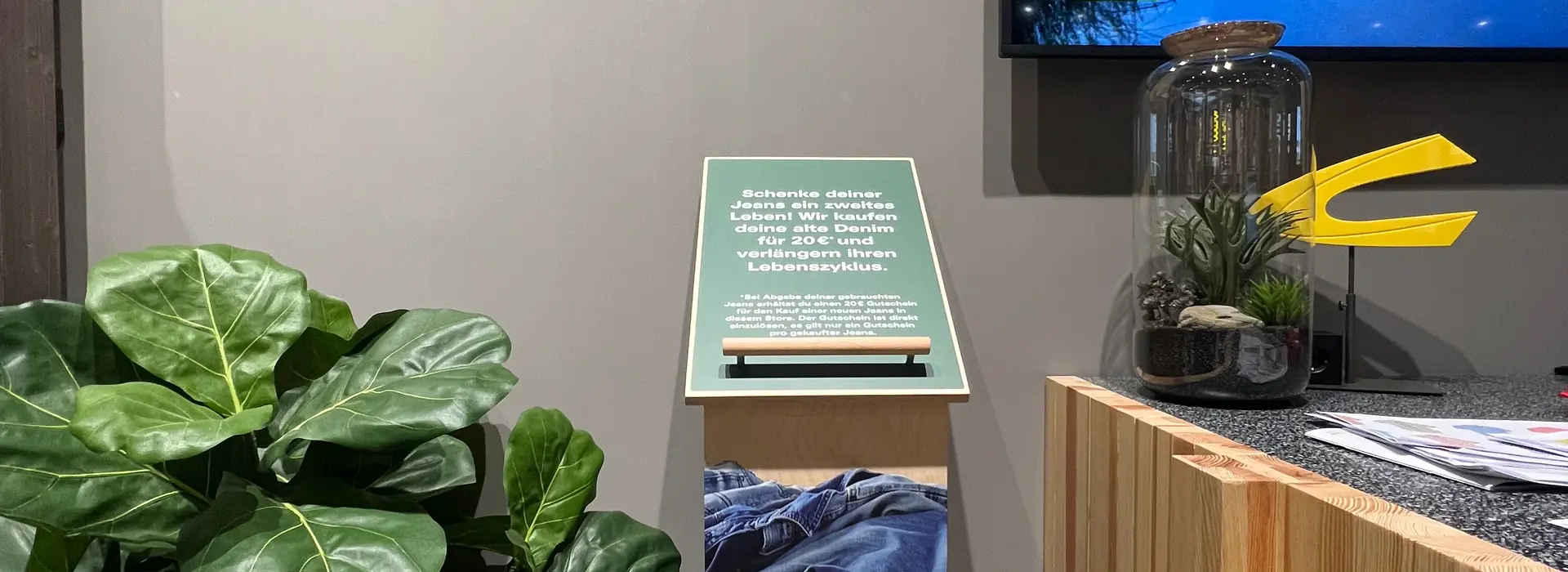
RECYCLE INSTEAD OF THROWING AWAY:
camel active UPCYCLING PROJECT
Have you ever wondered what happens to old clothes when they are discarded? Most textiles end up in the trash or are burned. Of course, this is anything but sustainable and harms our environment. But there is an alternative how you can counteract the textile waste and extend the life of your clothes:
Upcycling is a process that is becoming increasingly important, especially in the fashion industry. In this article we answer the most frequently asked questions about this topic and show you which exciting upcycling projects we are implementing at camel active and how you can easily upcycle different pieces yourself.
WHAT IS UPCYCLING AND WHY IS IT IMPORTANT?
In upcycling, various products, for example textiles, are transformed into new products and thus upgraded. The upcycling process therefore mainly is about reusing the materials in order to extend the life of old garments. In this way, upcycling leads to giving clothes that are no longer worn a new meaning and keeping them longer in the textile cycle.
Upcycling is therefore not only a great way to sustainably upgrade existing garments and create new products, but also an important process for conserving resources and minimizing the ecological footprint: By reusing materials, the need for new raw materials can be reduced, which in turn leads to a reduction in textile waste.
Upcycling and recycling: what's the difference?
You've probably heard both of these terms a few times before as especially in the fashion industry these are important topics. But what exactly is the difference between upcycling and recycling?
As you can see from the word, upcycling is made up of the two words "up" and "recycling". In general this means upcycling uses old materials and transforms them into something new. Unlike upcycling, recycling does not upgrade the products, but merely prepares them for reuse. It uses old materials and breaks them down into new materials that can be used to produce other products. Recycling therefore rather is about transforming existing products into new raw materials. For example, a pair of cotton jeans is shredded during recycling so that the cotton fibers can be reused for new textiles. Upcycling, on the other hand, turns a pair of jeans into a completely new product, such as a shopper bag. Overall, upcycling is much more environmental friendly than recycling as fewer resources, water and energy are consumed. In addition, trough upcycling textiles from the fashion industry, clothes can be transformed into new, stylish and unique products.
What garments can be upcycled?
Basically, all garments can be upcycled. Whether shirts, sweaters or jackets, every piece of clothing can be upgraded through upcycling and thus become a new favorite product. Also, especially denim pants are great for upcycling. How about a shopper bag made from old denims for example? Or a bucket hat for the next outdoor-adventure? In this way you not only give your worn-out clothes a new life, but you can even upcycle them into a real unique piece. In our next blog post, we'll show you how you can easily upcycle some pieces yourself, step by step.
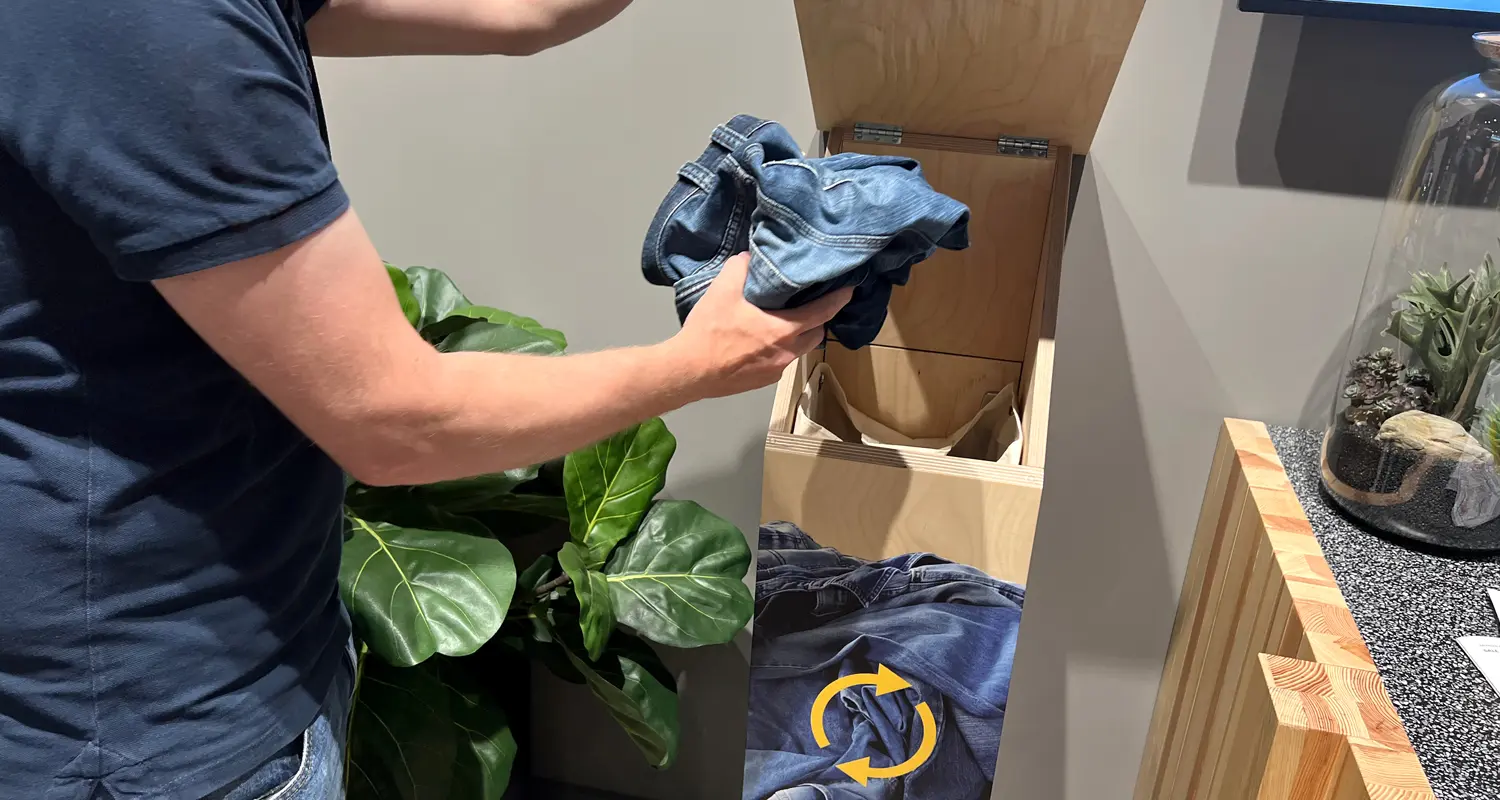
"OLD DENIM. NEW ADVENTURE."
UPCYCLING DENIM BOXES AT camel active
You're probably wondering what's behind our upcycling project at camel active. As an outdoor casual wear brand, we deeply care about our natural environment. In order to contribute to reducing our ecological footprint and counteract the high amount of waste, we have launched our denim boxes, which save old, worn-out jeans from the trash. But what exactly happens to the returned jeans and how do we implement upcycling at camel active?
HOW DOES THE UPCYCLING PROCESS WORK AT camel active?
Under the motto "Old Denim. New Adventure." we give old denim pants a second life in order to reuse the robust and durable denim material for exciting upcycling projects and thus reduce textile waste.
Our denim initiative started at our new store in Centro Oberhausen. Regardless of condition or brand, our customers can drop off their old, worn denims there and exchange them for a voucher. The jeans are then collected, sifted and sorted at our headquarter. The focus is then on reprocessing the pants and upcycling the goods. Jeans in very good condition can be returned to the textile cycle as re-used goods. However, the majority of the pants are used for upcycling projects, which are implemented both in-house at our headquarter, as well as through cooperation partners.
Collected denims that are no longer suitable for fashion upcycling due to their condition are finally recycled via a partner who processes the materials and feeds them into a new cycle.
What are the advantages of the Upcycling Denim Box for our customers?
Not only with regard to the topic of sustainability does our initiative "Old Denim. New Adventure." has many advantages. Our customers can also benefit from the Denim Initiative. For every pair of jeans returned, regardless of condition or brand, our customers receive a €20 voucher towards the purchase of a new pair of camel active jeans. In this way, we not only extend the lifecycle of old jeans, but also motivate our customers to contribute to the reduction of textile waste.
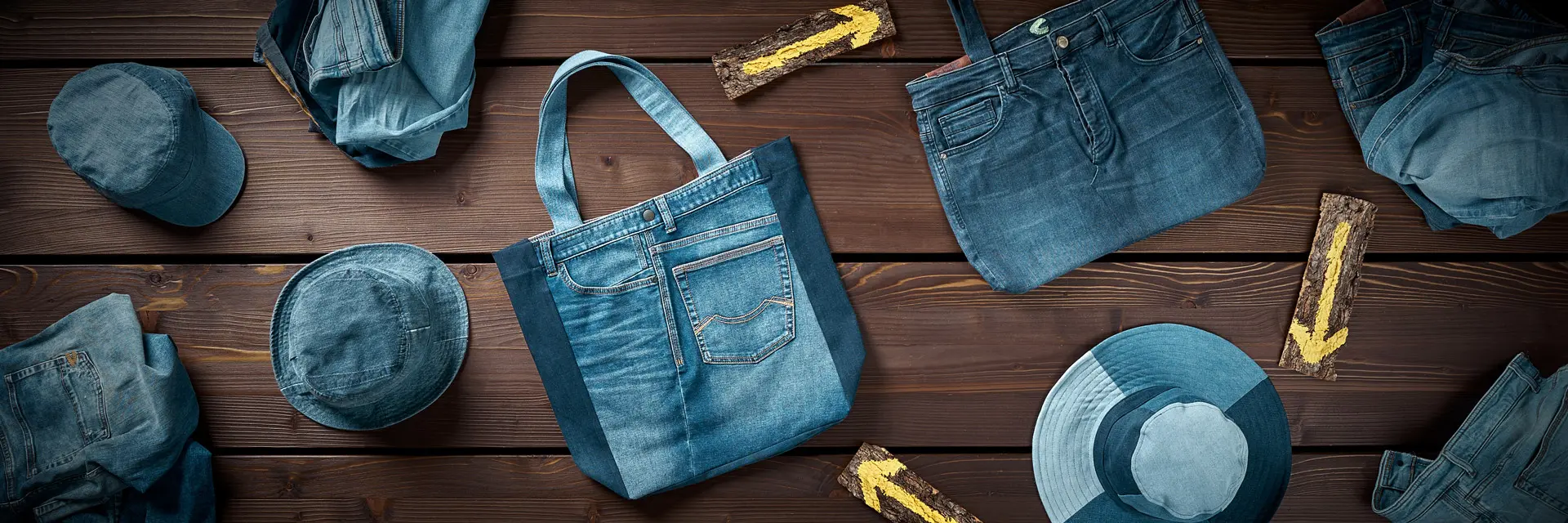
Where can you find the denim upcycling boxes?
So far, the denim pants can be dropped off at our camel active store in Centro Oberhausen. In the future, however, more locations are planned for the implementation of the denim box. If you want to know at which locations you can find the Denim Upcycling Boxes in the future, please subscribe to our newsletter and stay up to date. This way you are always up to date about exciting projects and cooperations. and stay up to date.
In our next blog post we will show you what creative upcycling ideas we have already implemented at camel active and how you can easily upcycle your old denim pants step by step into some great pieces. So: stay tuned!
If you also have more ideas what we should upcycle from old denims, feel free to send us a DM on Instagram with your suggestions.
Together let's MAKE AN ACTIVE CHANGE. #makeanactivechange
